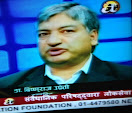1. Achievements in nepal's peace process
Great structural achievements in short time: New theory of conflict transformation
Change in power relations
People's movement
Power sharing: Interim Parliament, Interim government
CPA (UNMIN, AAMMA)
'Constructive role of PLA' and NA
Interim constitution
CA election
Inclusion (global record)
Peaceful republic
Largely an indigenous process
Constitutional change: Moving from consensus to competition, source of problems
Change in situation after CA election:
Change in power relations
Politics of mistrusts and suspension
Moving towards complicated direction
Contradiction: state supremacy v/s party supremacy
2. Current situation
Actions guided by severe mistrust and distrust
Weak implementation of agreements
Monitoring of peace process: Undermined no mechanisms
Dealing with military (both sides): politicised
Transitional justice, HR and transitional security: Sidelined
Poor handling of foreign relations (e.g., France, neighbours, UN)
New phenomena developed
Reactive politics
Criminalisation of politics and politicisation of crime
Militarization of youth and radicalisation of society
3. Scenarios, risks and early warning
Positive, right direction and good achievements
Less likely if the current approach is not change
Messy, complex and frustrating with less outcomes
Higher possibility
Worsening, deteriorating with no outcomes
More likely considering the current actions and behaviours of our leaders
Worst: civil war and state failure
Potential flash points observed
Foreign play ground (e.g., Somalia, Afghanistan)
Who loses if war? Nepalese people, political parties
Who wins if war? Arms smugglers, those who do not want peace
Do parties want 4th scenario?
4. Ways ahead
Fundamental review of the peace process for what went wrong, why and how
Content: what are major issues of contention
Process: how and why went wrong
Time frame: when and where went wrong
Introspection and self reflections by leaders
Immediately stop blame games (created negative social psyche and discrediting leaders)
80 % role in escalating tension
Constructive engagement
trust building
Exploring options (every thing has option other than death), their feasibility, resource requirements
Opt for consensus politics (revise IC?)
Use available knowledge base and experiences
Agree on minimum tasks to be accomplished before new constitution
Major tasks ahead for making peace process sucessful:
Constitution making
Integration and rehabilitation of Maoist combatants
Peace dividends to people
Improving security: law and order
Dealing with past and transitional justice
TRC
Reparation
IDPs
Disappeared
Other conflict victims
Security Sector Governance and Reform
Border management
Control of small arms
Post-conflict reconstruction
Subscribe to:
Post Comments (Atom)


No comments:
Post a Comment